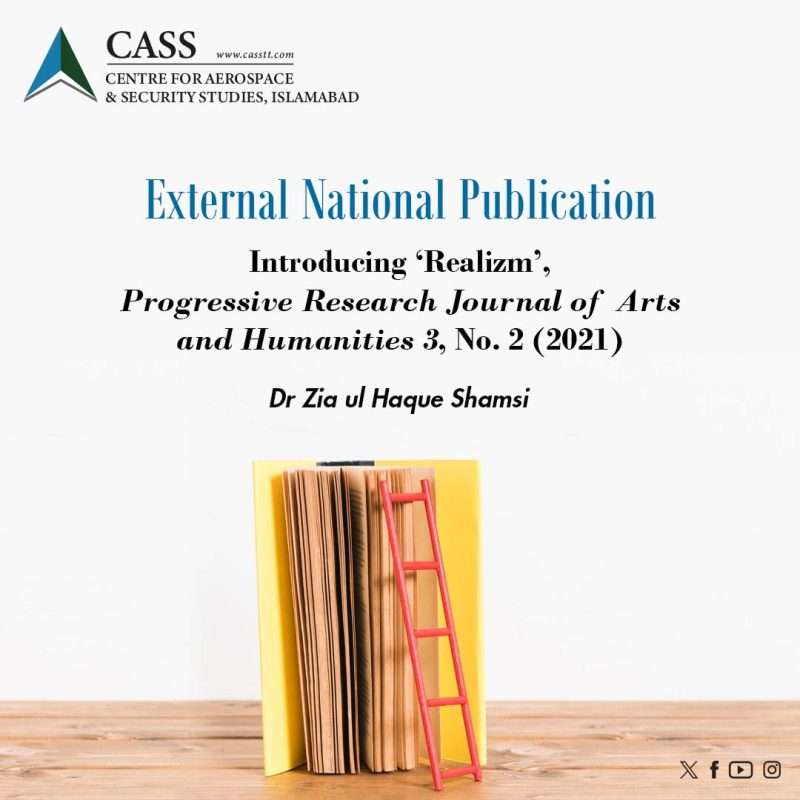Introducing ‘Realizm’, Progressive Research Journal of Arts and Humanities 3, No. 2 (2021)
Dr Zia ul Haque Shamsi
According to realist paradigm, the present international system is anarchic and selfish, and therefore needs to be reset, because the gap between the developed and developing nations has reached dangerous levels. The wars between Unequal Military Powers (UMPs), have ruined several states, particularly in the Middle East. While the causes of such wars would be debated for a long time, the outcome is extremely dreadful for the people of Iraq, Syria, Libya, Afghanistan, Palestine, Kashmir, and Yemen, to name the few. Therefore, there is a need to do away with old schools of realism, liberalism, or the constructivism, which have failed to maintain peace, stability, and security of the people particularly in developing world. Adopting an inductive reasoning approach, the aim of the study is to present a revised international relations’ theory to reset the flawed international system, supported with the qualitative data. The rephrased political theory of realizm focuses on self-realization, mutual assistance and common good, for regional development; with a view that global peace is possible through cooperation with prudence for safety, security, and stability of the international system.





